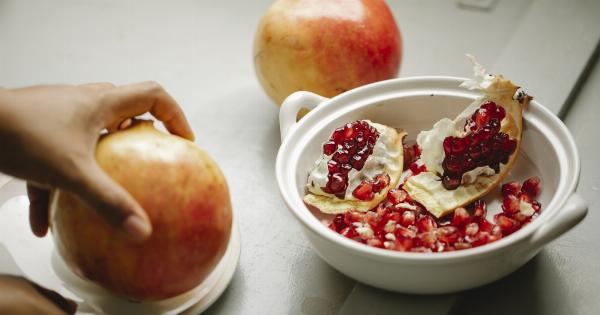Do you often feel bloated after meals? Has this discomfort become a regular part of your life, making you feel sluggish and uncomfortable? Bloating is a common problem that affects many individuals, and it can be caused by various factors.
One of the primary culprits behind bloating is the food we consume.
Understanding Bloating
Before we dive into the specific foods that may be causing your bloating, let’s have a better understanding of what bloating actually is.
Bloating refers to the feeling of increased pressure in your abdomen, often accompanied by visible swelling or distention. It can make your stomach feel tight, full, and uncomfortable. Bloating can occur for several reasons, including overeating, swallowing air, or food intolerances.
Foods That May Cause Bloating
1. Beans and Legumes.
Beans and legumes, such as chickpeas, lentils, and kidney beans, are notorious for causing bloating. These foods contain high amounts of complex carbohydrates and fiber, which are challenging for our bodies to digest.
As a result, they can lead to the production of excess gas, causing bloating and discomfort.
2. Cruciferous Vegetables.
While vegetables like broccoli, cauliflower, and cabbage are incredibly nutritious, they can also contribute to bloating. These vegetables contain raffinose, a sugar that our bodies struggle to break down completely.
The undigested sugar then ferments in our gut, producing gas and bloating.
3. Carbonated Drinks.
Sodas, sparkling water, and other carbonated beverages are filled with carbon dioxide gas, which can get trapped in your digestive system. These drinks can cause bloating and increase the feeling of fullness.
Opting for still, non-carbonated beverages can help alleviate bloating symptoms.
4. Dairy Products.
Many individuals have a lactose intolerance or sensitivity, meaning their bodies lack the enzyme required to properly digest lactose, the sugar found in milk and dairy products. This can lead to digestive distress, including bloating, gas, and diarrhea.
If you suspect dairy as the cause of your bloating, try eliminating it from your diet for a while to see if your symptoms improve.
5. Artificial Sweeteners.
Artificial sweeteners like aspartame and sucralose are commonly found in diet sodas, sugar-free gum, and various other “diet” products. While they may be low in calories, they can cause bloating and digestive discomfort for many people.
Pay attention to how your body reacts to artificial sweeteners and consider limiting your intake if you experience bloating.
6. Wheat and Gluten.
Wheat and gluten-containing grains, such as bread, pasta, and cereals, can contribute to bloating in individuals who have a gluten intolerance or sensitivity.
The protein gluten can cause inflammation in the digestive system, leading to bloating and other digestive issues. Consider trying a gluten-free diet to see if your symptoms improve.
7. Onions and Garlic.
Onions and garlic belong to the allium family and contain a type of carbohydrate called fructans. Fructans can ferment in the gut, resulting in gas production and bloating, especially for individuals with a sensitive digestive system.
Cooking these vegetables can help reduce the bloating effect, as heat breaks down the carbohydrates.
8. Fatty Foods.
Foods high in fat, such as fried foods, fatty cuts of meat, and rich desserts, can delay stomach emptying and contribute to bloating. These foods take longer to digest, allowing gas to build up in the stomach and intestines.
Consuming these foods in moderation and opting for healthier fats can help reduce bloating.
9. Apples and Pears.
While apples and pears are packed with fiber and nutrients, they also contain a type of fiber called pectin. Some individuals may have difficulty digesting this particular fiber, leading to bloating and discomfort.
If you experience bloating after consuming these fruits, try enjoying them in moderation or opting for other low-fiber fruits instead.
10. High-Fructose Corn Syrup.
High-fructose corn syrup is a sweetener commonly used in processed foods and beverages. It is a type of sugar that can be difficult for some individuals to digest, leading to bloating and other digestive symptoms.
Reading food labels and avoiding products containing high-fructose corn syrup can help reduce bloating.
How to Alleviate Bloating
Now that you are aware of some common foods that may be causing your bloating, you might be wondering how to alleviate these uncomfortable symptoms. Here are a few tips:.
1. Keep a Food Diary.
Maintain a food diary to track your meals and any associated symptoms. This can help you identify specific foods that consistently trigger bloating, allowing you to make informed dietary adjustments.
2. Eat Smaller, More Frequent Meals.
Avoid overeating by consuming smaller meals throughout the day. This approach helps prevent the digestive system from becoming overwhelmed and can reduce bloating.
3. Slow Down While Eating.
Eating too quickly can lead to swallowing excess air, which in turn causes bloating. Take your time and chew your food thoroughly to facilitate better digestion.
4. Avoid Gas-Producing Foods.
Identify and limit foods that are known to cause gas and bloating in your individual case. This may require some experimentation and eliminating specific foods from your diet for a period to assess the impact on your symptoms.
5. Stay Hydrated.
Ensure you are drinking enough water throughout the day. Staying hydrated prevents constipation and promotes regular bowel movements, reducing the likelihood of bloating.
6. Be Mindful of Food Combining.
Some individuals find that certain food combinations lead to increased bloating. Pay attention to how your body reacts to different combinations and adjust your meals accordingly.
7. Seek Medical Advice.
If bloating persists despite dietary adjustments, it is advisable to consult a healthcare professional for further evaluation. They can help identify any underlying digestive issues or food intolerances that may be contributing to your bloating.
Conclusion
Bloating can be a troublesome and uncomfortable condition, but by identifying and avoiding the specific foods that may be causing your symptoms, you can alleviate your discomfort.
Keep in mind that everyone is different, and certain foods may affect individuals differently. Maintaining a balanced and healthy diet while being mindful of your body’s specific reactions is key to managing bloating and achieving overall digestive wellness.





























